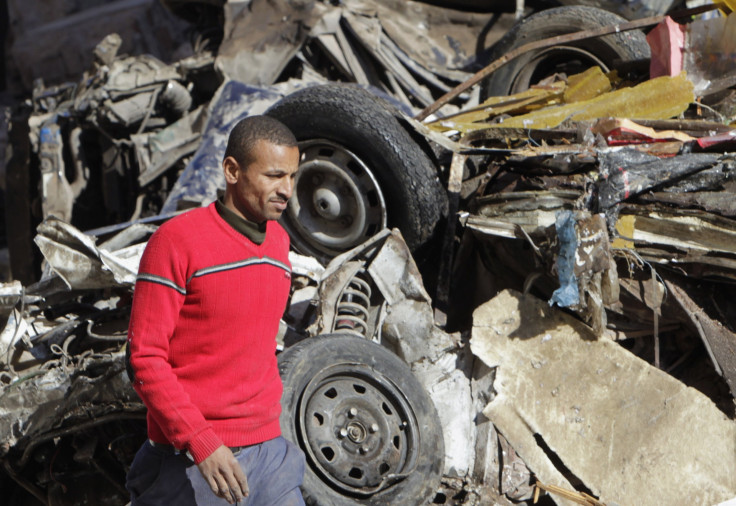Car Bomb Kills 13 In Egypt, More Than 100 Wounded In Early Morning Blast North Of Cairo

CAIRO (Reuters) -- A car bomb tore through a police compound in Egypt's Nile Delta on Tuesday, killing 13 people and wounding more than 130, security officials said, in one of the deadliest attacks since the army deposed Islamist President Mohamed Mursi in July.
The army-backed government vowed to fight "black terrorism," saying the blast an hour after midnight in the city of Mansoura north of Cairo would not derail a political transition plan whose next step is a January referendum on a new constitution.
The attack prompted a cabinet statement declaring Mursi's Muslim Brotherhood a "terrorist organization," though a state news agency report did not explicitly accuse the group of staging the attack. Mursi's group condemned the bombing.
With at least eight policemen among the dead, the blast underlined the risk of militancy moving to the densely populated Nile Valley from the Sinai Peninsula, where attacks have killed some 200 members of the security forces since Mursi's downfall.
"We face an enemy that has no religion or nation," Interior Minister Mohamed Ibrahim, the survivor of an assassination attempt in Cairo in September, said at the scene of the blast.
The army said a car bomb had been used in what it called a "vile terrorist attack," while the presidency said such attacks "only increase the state's determination to uproot terrorism".
Police "combat units" would deploy across the country with orders to use live ammunition, state TV reported.
Egypt has suffered the deadliest internal strife in its modern history since the army deposed Mursi, the nation's first freely elected leader, on July 3 after big protests against him.
The security forces killed hundreds of his supporters as part of a campaign to repress his Muslim Brotherhood, while lethal attacks on the security forces have become commonplace.
Some analysts say Egypt could face a sustained Islamist insurrection, a risk compounded by a flood of weapons smuggled out of neighboring Libya since the uprising against Muammar Gaddafi began there almost three years ago.
In a statement from its London media office, the Brotherhood condemned the blast as "an attack on the unity of the Egyptian people."
© Copyright IBTimes 2025. All rights reserved.





















